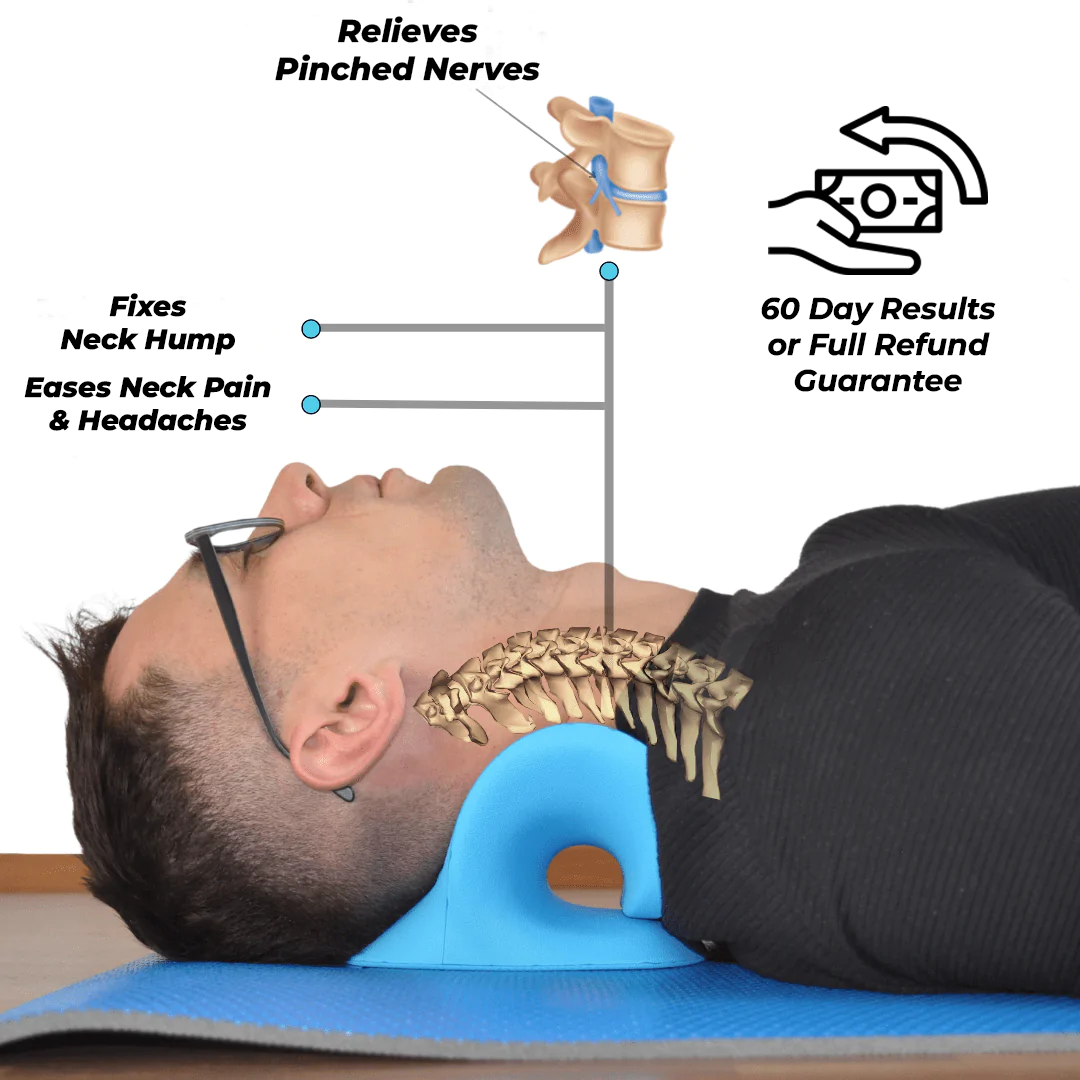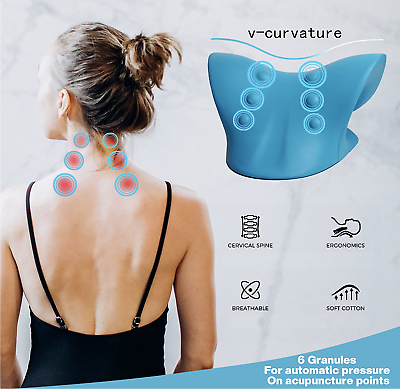Neck Cloud Review: A Revolutionary Tool for Neck and Spine Wellness
Neck Cloud Review: A Revolutionary Tool for Neck and Spine Wellness
Blog Article
The Effect of Tension on Neck Discomfort: Techniques for Lowering Tension and Pain
In today's hectic globe, it's no trick that tension has come to be a common variable in the start and worsening of neck discomfort. Join us on a trip to untangle the effect of anxiety on neck discomfort and find efficient methods to ease pain and improve general high quality of life.
Recognizing Stress-Related Neck Discomfort
Neck discomfort is a typical problem that can commonly be associated to anxiety. Stress-related neck pain can materialize as tension, stiffness, or discomfort in the neck and shoulder location. The link between tension and neck pain hinges on the body's physical action to stress and anxiety, which can cause muscular tissue stress and tightness in the neck muscles. Persistent anxiety can result in consistent neck pain and aggravate present problems like cervical spondylosis or muscle mass strains.

Identifying Common Tension Locations
One common tension location is the neck, where anxiety typically manifests literally. Stress headaches, rigid neck muscles, and restricted variety of motion are common signs of stress-related neck tension. Being aware of these typical stress areas can assist people acknowledge the physical indicators of anxiety and take actions to address them before they escalate right into persistent discomfort or discomfort.
Executing Relaxation Strategies
To successfully handle stress-related tension in the body, implementing leisure methods is essential. Leisure techniques are valuable devices for minimizing neck pain brought on by anxiety. Deep breathing exercises can aid soothe the mind and relax stressful muscle mass in the neck and shoulders (neck cloud). Exercising mindfulness reflection can also be beneficial in relieving anxiety and promoting leisure. Progressive muscular tissue relaxation, where you methodically tense and after that unwind various muscle mass teams, can release built-up stress in the neck area. Furthermore, tasks like yoga and tai chi include both physical motion and leisure, making them effective techniques for minimizing stress and neck pain. Taking normal breaks throughout the day to stretch and relax can protect against muscle tightness and stress from building up. By including these leisure techniques into your everyday regimen, you can help handle stress and anxiety levels, decrease stress in the neck, and alleviate discomfort connected with stress-induced neck discomfort.
Including Self-Care Practices
Including self-care techniques is essential for maintaining overall well-being and managing stress-related neck pain successfully. Involving in routine physical task, such as mild stretching exercises or yoga, can help reduce tension in the neck useful source and shoulders. Practicing good position throughout the day and taking frequent breaks from extended sitting or display time can also stop strain on the neck muscle mass.
Moreover, focusing on ample rest and establishing a regular sleep routine can add considerably to decreasing tension degrees and advertising leisure. Creating a relaxing bedtime regimen, such as reviewing a publication or taking a warm bath, can help prepare the mind and body for peaceful sleep. Additionally, keeping a balanced diet abundant in nutrients and staying hydrated can more info here sustain general health and lower swelling that might intensify neck pain.
Including mindfulness methods, such as deep breathing workouts or reflection, can help take care of tension and advertise relaxation. Taking time for oneself, participating in hobbies, and establishing boundaries to shield personal time are additionally essential facets of self-care that can add to lowering anxiety and reducing neck discomfort.
Seeking Professional Aid
Exactly how can people efficiently resolve persistent neck discomfort that is impacting their everyday life and health? Seeking expert aid can be an essential action in managing and minimizing neck discomfort. Consulting with healthcare experts such as chiropractics physician, physiotherapists, or orthopedic experts can provide important understandings and personalized treatment strategies. These experts can conduct thorough analyses to detect the underlying reasons for neck pain and advise appropriate interventions.
Chiropractic practitioners specialize in spinal manipulation techniques to enhance positioning and minimize stress in the neck location. Physiotherapists provide targeted workouts and stretches to strengthen muscles, boost adaptability, and boost total neck feature. Orthopedic professionals can give sophisticated clinical interventions such as injections or surgical options for extreme instances of neck discomfort.
Verdict

Stress-related neck pain can materialize as tension, tightness, or discomfort in the neck and shoulder area. The connection between tension and neck pain lies in the body's physiological reaction to tension, which can result in muscle mass tension and tightness in the neck muscles. Stress frustrations, tight neck muscular tissues, and limited variety of movement are typical signs of stress-related neck tension. By including these leisure strategies right into your everyday routine, you can help manage stress and anxiety degrees, minimize tension in the neck, and minimize discomfort associated with stress-induced neck discomfort.

Report this page